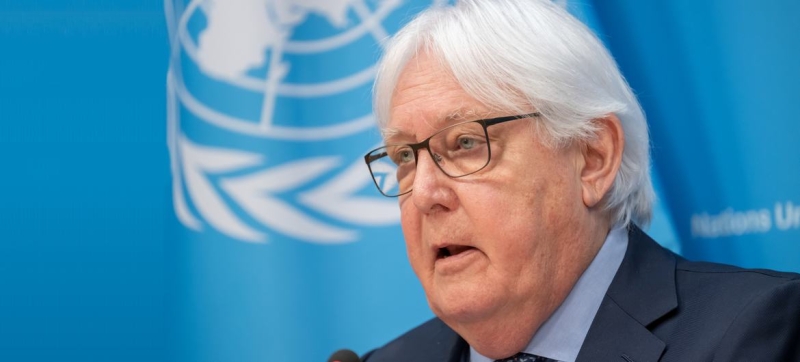
UN Emergency Relief Coordinator Martin Griffiths at a press conference in New York. UN Emergency Relief Coordinator Martin Griffiths steps down Humanitarian aid
Martin Griffiths, UN Under-Secretary-General and head of the UN Humanitarian Affairs Office, held his last press conference in this post the day before. He said he is leaving his position at the end of the month with “a sense of wisdom” and at the same time a sense of sadness as many crises no longer receive widespread media coverage and donors provide fewer funds even as people continue to suffer.
The situation has gotten worse
“I leave this post with a feeling of unfulfilled work – the world today is an even worse place to live than when I took over 2021,” Griffiths shared with reporters.
According to him, the international community does not use dialogue to resolve conflicts, although this mechanism was provided for in the UN Charter about 80 years ago. Classic political diplomacy, laments the Emergency Relief Coordinator, has virtually disappeared and impunity is rampant. They shouldn’t be the saviors. The saviors of this world will be the people who will end wars and build peace,” said Griffiths.
Forgotten Crises
He reported that 300 million people on the planet today need humanitarian assistance, and income from donors is declining. Thus, out of the 49 billion dollars requested this year to support 188 million people, the UN received only 8 billion. “And now it’s the middle of the year, such a deplorable situation has never happened before,” he said.
In addition, according to the UN Deputy Secretary General, all the attention of the international community is now focused on Gaza, Sudan and Ukraine, but people in countries such as Syria, Yemen and Haiti continue to suffer.
Griffiths recalled that when he took over as Emergency Relief Coordinator, the main crisis was unfolding in Ethiopia’s Tigray. And now, according to him, it has not been fully calculated how many people died there – according to estimates, more than 200 thousand. “Not a lot of people are talking about Tigray right now, but there are reports that people are starving there,” he added. h2>
After Tigray, the attention of the world community turned to Afghanistan, where the Taliban seized power in August 2021. Around the same time, a large earthquake occurred in Haiti.
Griffiths then visited Kabul, where, on behalf of the UN chief, he held a meeting with the de facto authorities of Afghanistan. “We had hopes then,” he recalls. “We received written assurances regarding cooperation with the Taliban, but these hopes were not justified.”
Russian invasion of Ukraine
Speaking of the Russian invasion of Ukraine in February 2022, Martin Griffiths recalled its tragic consequences – a catastrophic humanitarian situation, mass displacement, cases of human trafficking and sexual violence, “the complete collapse of the systems that served as protection generations of people.”
In April 2022, the UN Emergency Relief Coordinator visited Irpen in Ukraine, a city near Kiev that had been damaged by fighting. He was then shocked by the scale of destruction he saw.
“Humanitarian Diplomacy”
Looking back, Griffiths notes that as the space for “political diplomacy” shrinks due to geopolitical differences, “humanitarian diplomacy” is taking its place.
According to him, a great achievement of humanitarian diplomacy was the Black Sea Grain Initiative and Memorandum of Understanding, signed in July 2022 against the backdrop of Russia’s invasion of Ukraine. These deals, which included the supply of Russian and Ukrainian agricultural products to world markets, helped strengthen global food security. They ended with Russia’s decision to withdraw from the agreements.
